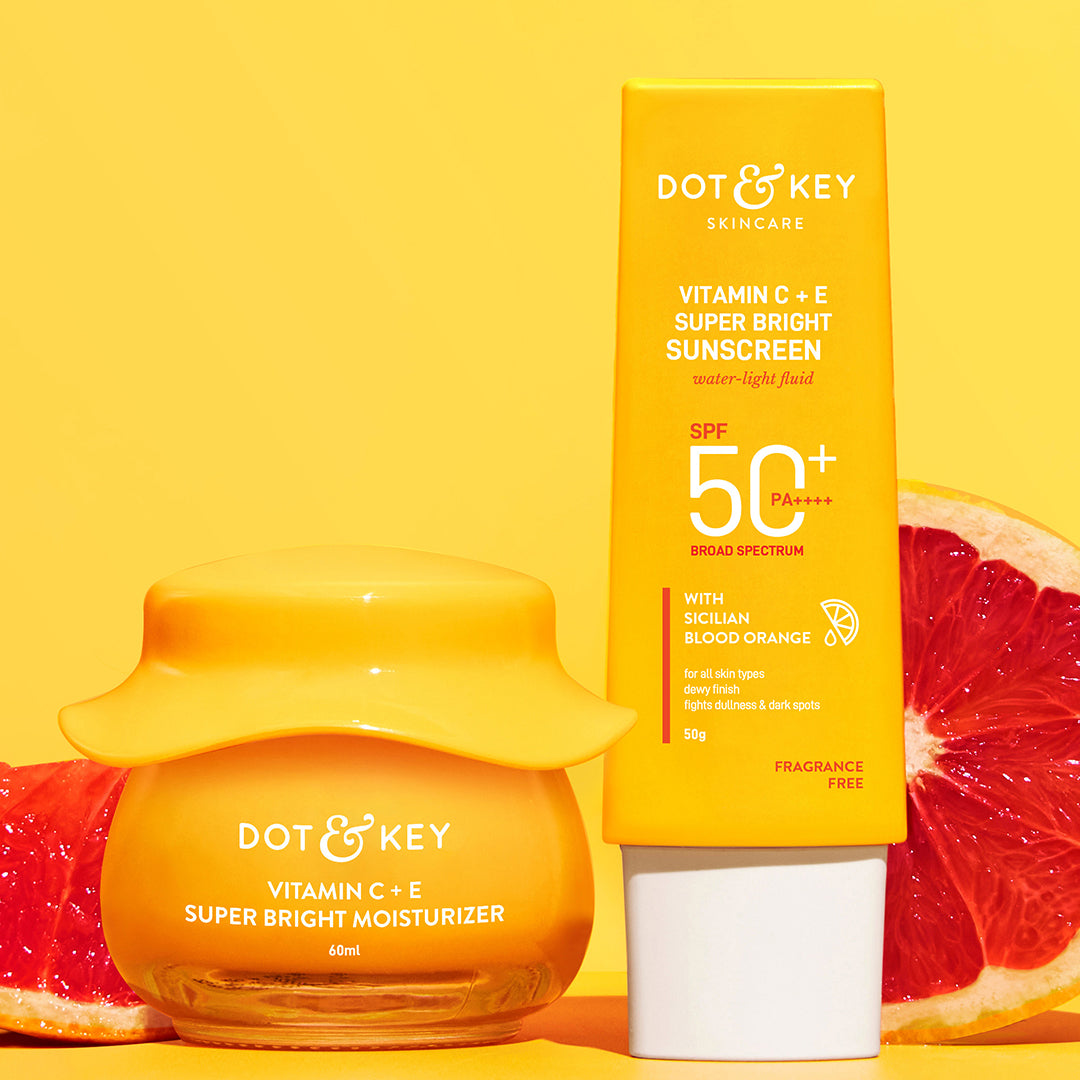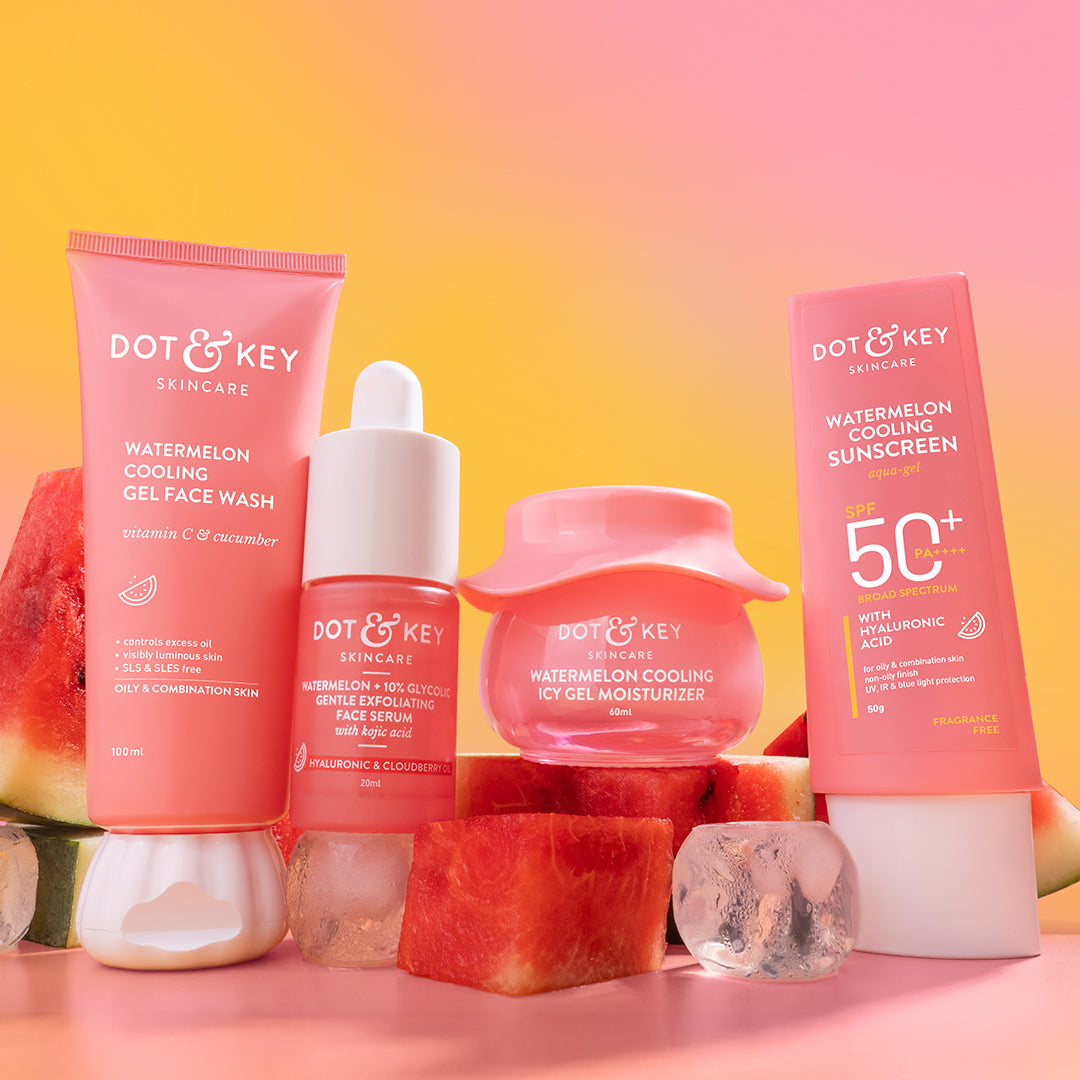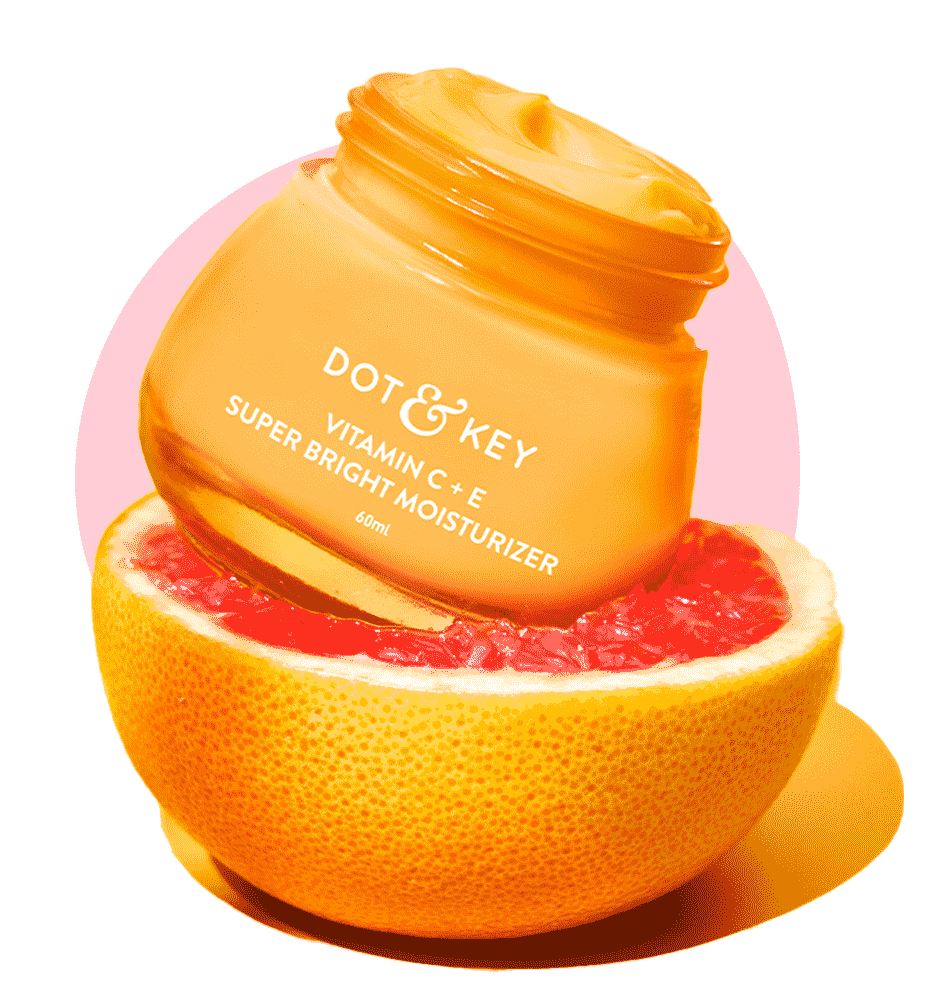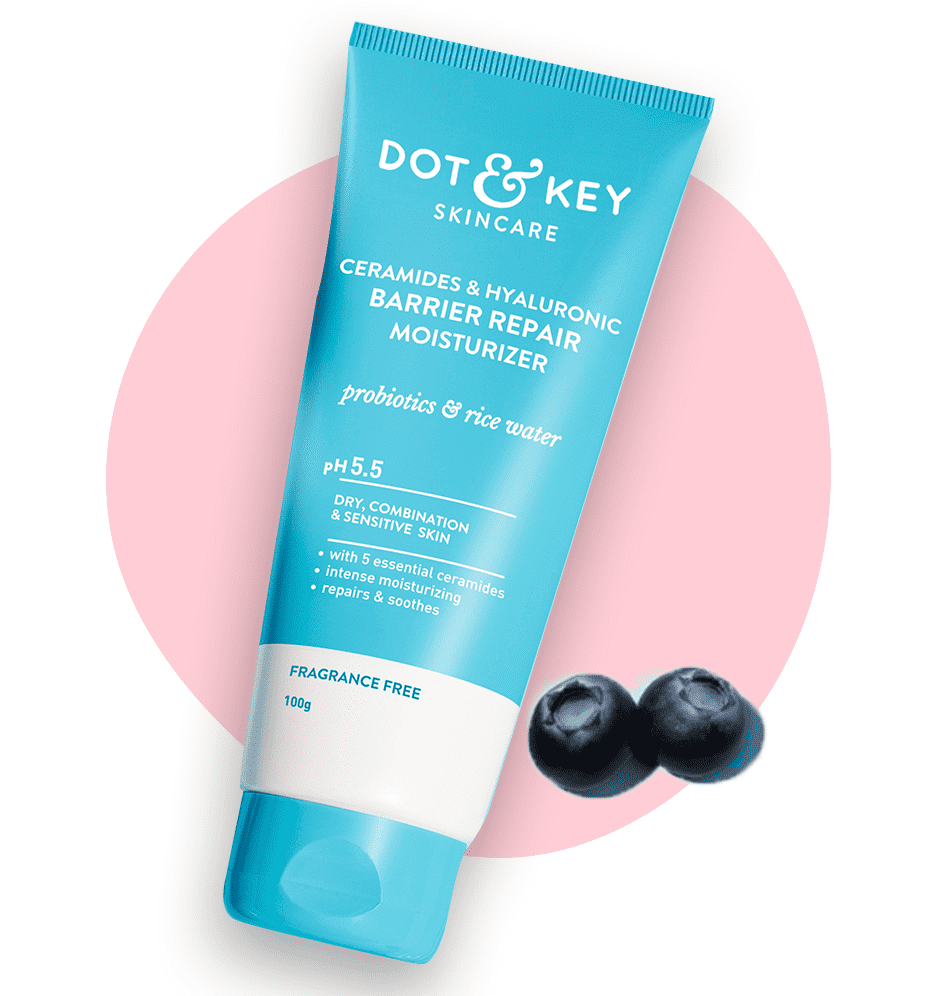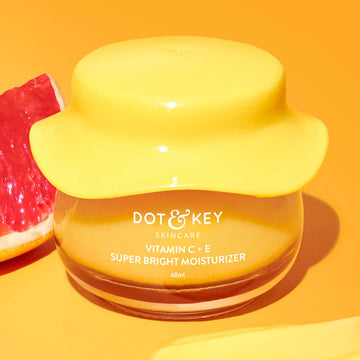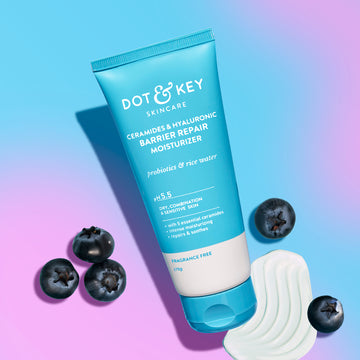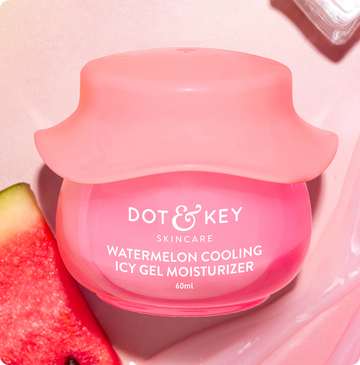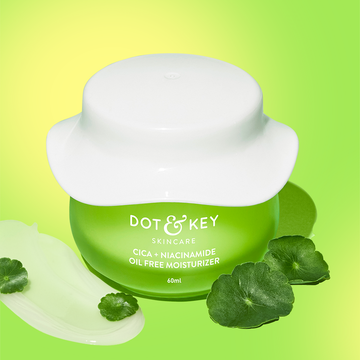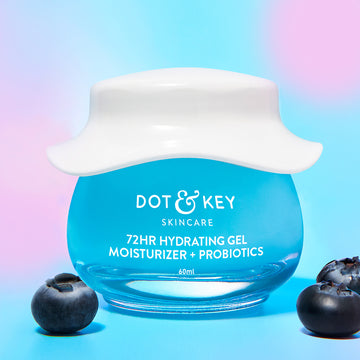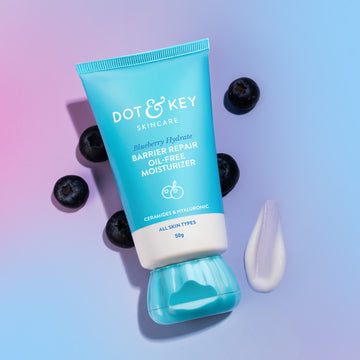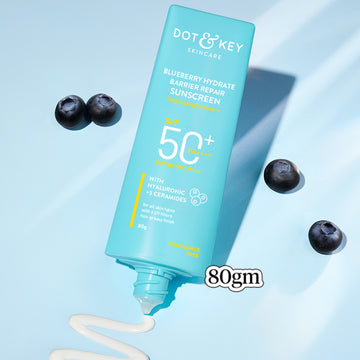
When the temperatures rise and the humidity kicks in, slathering on moisturizer might feel like the last thing your skin needs. Sweaty, sticky, and already shiny—do you really need another layer?
Short answer? Yes—you do.
Skipping moisturizer in summer can actually backfire, leaving your skin dehydrated, unbalanced, and more prone to breakouts or oiliness. Surprised? Don’t worry—we’re breaking down exactly why moisturizer is still a must in hot weather, how to pick the right one for your skin type, and the best tips to keep your skin fresh, light, and glow-ready all summer long.
Let’s get into it!
Why Use Moisturizer in Summer?
You might think summer’s humidity and sweat mean your skin is hydrated enough, but that’s a common misconception. Moisturizer isn’t just about adding oil—it’s about delivering water, strengthening your skin barrier, and keeping things balanced. Here’s why moisturizer is a summer must-have:
1. Summer Can Dehydrate Your Skin
Hot weather, sun exposure, and air-conditioned rooms can zap moisture from your skin, even if it feels oily or sweaty. Here’s how:
- Sun Exposure: UV rays break down your skin’s natural oils and damage its barrier, leading to dryness and irritation.
- Sweat: Sweating can dehydrate your skin by pulling water out, especially if you’re not replenishing with enough fluids.
- Air Conditioning: AC strips humidity from the air, leaving your skin parched indoors.
- Frequent Cleansing: Washing your face more often to combat sweat and oil can strip moisture if you’re not moisturizing afterward.
Moisturizer replenishes water and helps your skin stay hydrated, even in the summer heat.
2. It Protects Your Skin Barrier
Your skin barrier is like a shield that keeps moisture in and irritants out. Summer stressors like UV rays, chlorine from pools, and salty ocean water can weaken it, leading to:
- Dryness or flakiness, even on oily skin.
- Sensitivity or redness.
- Increased risk of breakouts or irritation.
Moisturizers with ingredients like ceramides, hyaluronic acid, or niacinamide strengthen this barrier, keeping your skin resilient.
3. It Balances Oily Skin
If you have oily skin, you might think moisturizer will make you shinier, but skipping it can backfire. When your skin is dehydrated, it may produce more oil to compensate, leading to clogged pores and breakouts. A lightweight moisturizer:
- Hydrates without adding grease.
- Signals your skin to chill on the oil production.
- Prevents that tight, dry feeling after cleansing.
4. It Enhances Sun Protection
Sunscreen is non-negotiable in summer, and moisturizer plays a supporting role. It:
- Creates a smooth base for sunscreen, helping it apply evenly.
- Soothes skin irritated by sun exposure or SPF ingredients.
- Boosts hydration, which can be depleted by UV damage.
Some moisturizers even come with SPF, streamlining your routine.
5. It Preps Skin for Other Products
Whether you’re using serums, acne treatments, or makeup, moisturizer ensures they work better. It:
- Locks in active ingredients from serums.
- Reduces irritation from strong treatments like retinoids or acids.
- Prevents makeup from looking cakey or patchy on dehydrated skin.
Do You Need a Different Moisturizer in Summer?
While you can use your regular moisturizer in summer, tweaking your choice based on the season can make a big difference. Summer calls for lighter, non-greasy formulas that won’t feel heavy in the heat or humidity. Here’s how to pick the perfect summer moisturizer:
1. Go for Lightweight Formulas
Swap heavy creams or ointments for:
- Gel Moisturizers: Water-based and fast-absorbing, ideal for oily or combination skin.
- Lotions: Lighter than creams, great for normal to dry skin.
- Serum-Like Moisturizers: Thin, hydrating formulas that sink in quickly.
Look for labels like “non-comedogenic” (won’t clog pores) or “oil-free” to avoid a greasy feel.
2. Focus on Hydrating Ingredients
Choose moisturizers with these summer-friendly ingredients:
- Hyaluronic Acid: Draws water into your skin for lightweight hydration.
- Glycerin: A humectant that keeps skin soft without stickiness.
- Niacinamide: Balances oil, soothes irritation, and strengthens the skin barrier.
- Cica (Centella): Soothes and calms sun-exposed or sensitive skin.
- Antioxidants: Like vitamin C, vitamin E, blood orange, strawberry, blueberry & antioxidant-rich fruits to protect against UV damage and pollution.
Avoid thick occlusives (like petrolatum or heavy butters) unless your skin is very dry, as they can feel suffocating in summer.
3. Consider Mattifying Options
If shine is a concern, pick a moisturizer with mattifying ingredients like Cica (Centella), witch hazel, or green tea to control oil while hydrating.
4. SPF Combo Products
For daytime, a moisturizer with broad-spectrum SPF 30+ or a hydrating sunscreen that works as Moisturizer + Sunscreen - saves time. Just make sure to apply enough.
5. Match Your Skin Type
- Oily Skin: Gel-based, oil-free moisturizers
- Dry Skin: Lightweight lotions with ceramides or squalane
- Combination Skin: Balanced formulas
- Sensitive Skin: Fragrance-free, soothing options
Pro tip: Test a new moisturizer on a small patch of skin to ensure it feels good in hot weather and doesn’t clog pores.
How to Use Moisturizer in Summer Like a Pro
To make moisturizing work in the heat, follow these tips:
- Apply on Damp Skin: After cleansing or toning, apply to slightly damp skin to lock in moisture. This is especially effective in humid climates.
- Use a Small Amount: A pea-sized amount is usually enough for your face. Too much can feel heavy or sticky in summer.
- Layer Smartly: Follow this order: cleanser, toner, serum, moisturizer, sunscreen (daytime). At night, swap sunscreen for treatments if needed.
- Moisturize Twice Daily: Use morning and night, but opt for a lighter formula during the day if you’re prone to shine.
- Reapply as Needed: If you’re swimming or sweating a lot, reapply a light moisturizer after cleansing to restore hydration.
- Store in a Cool Place: Heat can alter some moisturizers’ texture, so keep them away from direct sunlight.
Summer Skincare Tips to Complement Moisturizer
Moisturizer is just one part of a summer-ready routine. These habits will keep your skin thriving:
- Use a Gentle Cleanser: Avoid harsh, foaming cleansers that strip oils. Try a gel based facewash for a hydrating, refreshing clean.
- Exfoliate Lightly: Use a gentle chemical exfoliant (like lactic acid) 1-2 times a week to remove dead skin without irritating.
- Never Skip Sunscreen: Apply a broad-spectrum SPF 30+ daily, even on cloudy days, to protect against UV damage.
- Stay Hydrated: Drink plenty of water and eat water-rich foods (like watermelon or cucumber) to support skin hydration.
- Blot Excess Oil: Use blotting papers during the day to control shine without disturbing your moisturizer or sunscreen.
- Cool Down Irritated Skin: Keep a soothing product like aloe gel or a hydrating mist in the fridge for post-sun relief.
Final Thoughts
So, can you use moisturizer in summer? Heck yes! Moisturizer is your skin’s BFF year-round, keeping it hydrated, protected, and balanced even in the hottest months. The key is choosing a lightweight, non-comedogenic formula that suits your skin type and applying it correctly. Pair it with sunscreen, a gentle cleanser, and smart summer habits, and your skin will stay cool, calm, and glowing.


